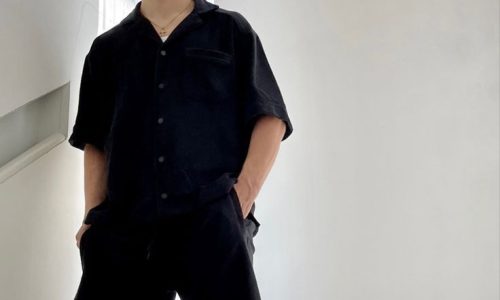
T-Shirts: Redefining Casual Cool in 2025
T-Shirts: Redefining Casual Cool in 2025
Introduction
In 2025, the humble T-shirt has evolved into a canvas of culture, creativity, and comfort, transforming the way we perceive casualwear. Once considered a wardrobe basic, the modern T-shirt now stands at the crossroads of fashion innovation, sustainable practices, and expressive design. Consumers no longer view the tee as just a layering piece; instead, it has emerged as a bold fashion statement that reflects personal identity, technological advancement, and social consciousness. This evolution is redefining what it means to dress casually in a world that embraces individuality and intentional style.
The Evolution of the T-Shirt: From Utility to Style Icon
The origins of the T-shirt can be traced back to utilitarian purposes, primarily as an undergarment for soldiers and laborers. Over the decades, it made a steady ascent from backstage staple to center stage in the fashion realm. By the 1970s and 1980s, it had become a vehicle for protest, pop culture, and self-expression. In 2025, the T-shirt has reached new heights as an adaptable, stylish, and versatile fashion icon. Designers are reimagining it with unconventional silhouettes, luxurious fabrics, and intricate embellishments. From oversized cuts with asymmetrical hems to cropped versions with laser-cut details, the T-shirt now commands attention for its stylistic depth.
Fabric Innovations Shaping 2025’s T-Shirt Landscape
Advancements in textile technology have significantly influenced the look, feel, and functionality of T-shirts in 2025. Today’s consumers demand comfort without compromising on performance or sustainability. As a result, we see a rise in eco-friendly materials such as organic cotton, bamboo blends, recycled polyester, and biodegradable synthetics. These fabrics not only feel luxurious against the skin but also contribute to environmental preservation.
Moisture-wicking, odor-resistant, and temperature-regulating textiles are now standard in performance-oriented T-shirts. Additionally, smart fabrics embedded with nanotechnology offer features like UV protection, biometric tracking, and even climate adaptability. This blending of fashion and function exemplifies the modern T-shirt’s transformation from mere apparel to intelligent design.
The Rise of Graphic Storytelling Through T-Shirts
In 2025, visual storytelling is a dominant force in T-shirt design. Graphic tees now serve as visual narratives that communicate messages ranging from political activism to nostalgic homage. Whether through digital printing, embroidery, or 3D appliqué, designers are pushing creative boundaries to make every shirt a piece of wearable art.
Limited-edition releases often feature collaborations between fashion houses and visual artists, resulting in T-shirts that bridge the gap between gallery and streetwear. Typography-based designs, manga influences, and digital glitch aesthetics are especially popular, reflecting a culture that thrives on both heritage and futurism. With the right graphic, a T-shirt becomes more than just clothing—it becomes a personal manifesto.
Customization and Personal Expression
Consumers in 2025 crave unique pieces that resonate with their identities. The demand for custom T-shirts has never been higher. Through online platforms and in-store services, individuals can now design their own tees with personalized slogans, color schemes, artwork, or even augmented reality elements. Fashion brands have embraced this trend, offering user-friendly customization tools that empower wearers to be their own designers.
Hand-painted, embroidered, and digitally augmented T-shirts enable consumers to move beyond fast fashion and invest in pieces that carry emotional value. This push toward personalization supports a broader shift toward intentional fashion consumption, where meaning and authenticity take precedence over mass production.
Sustainability as a Defining Principle
The fashion industry in 2025 is deeply rooted in sustainability, and T-shirts are at the forefront of this shift. Labels are increasingly transparent about sourcing, production processes, and post-consumer impact. Eco-labeling, biodegradable packaging, and carbon offset programs are now common among T-shirt brands committed to ethical manufacturing.
In addition to sustainable fabrics, many companies adopt circular production models. This includes take-back programs, recycling initiatives, and the creation of T-shirts designed for disassembly. Consumers are more informed and conscientious, seeking out brands that align with their environmental values and social responsibility standards.
T-Shirts in Streetwear Culture
T-shirts have long been a cornerstone of streetwear, and in 2025, their significance within this fashion subculture is stronger than ever. Streetwear brands are elevating the classic tee with high-end tailoring, unexpected materials, and boundary-pushing graphics. Collaborations with musicians, athletes, and digital influencers continue to fuel hype and exclusivity.
Drop culture remains a central element of streetwear’s appeal, with limited-release T-shirts generating buzz across social media platforms. These drops not only reflect current trends but also shape them, driving consumer behavior and resale markets. As a result, the T-shirt is not just a piece of clothing—it’s a cultural artifact.
T-Shirts in Luxury Fashion
Luxury fashion has fully embraced the T-shirt, integrating it into collections with the same reverence once reserved for blazers and evening gowns. High-end designers are using silk, cashmere blends, and finely embroidered details to elevate the humble tee into a symbol of refined taste.
Logos are more subtle, placements more artistic, and fits more sculptural. The juxtaposition of elevated fabrics with casual silhouettes creates a tension that defines the new era of casual luxury. Paired with tailored trousers, flowing skirts, or layered under designer outerwear, the T-shirt now plays a central role in high fashion ensembles.
Conclusion
In 2025, the T-shirt has transcended its origins as a simple garment and evolved into a multifaceted symbol of modern style, innovation, and values. No longer relegated to the background, it occupies a prominent place in wardrobes across demographics and design philosophies. From streetwear to haute couture, from eco-conscious innovations to personalized self-expression, the T-shirt encapsulates the zeitgeist of a generation seeking authenticity and creativity. As the fashion industry continues to prioritize individuality, sustainability, and technology, the T-shirt stands not only as a staple of casual cool but as a defining icon of its time.


